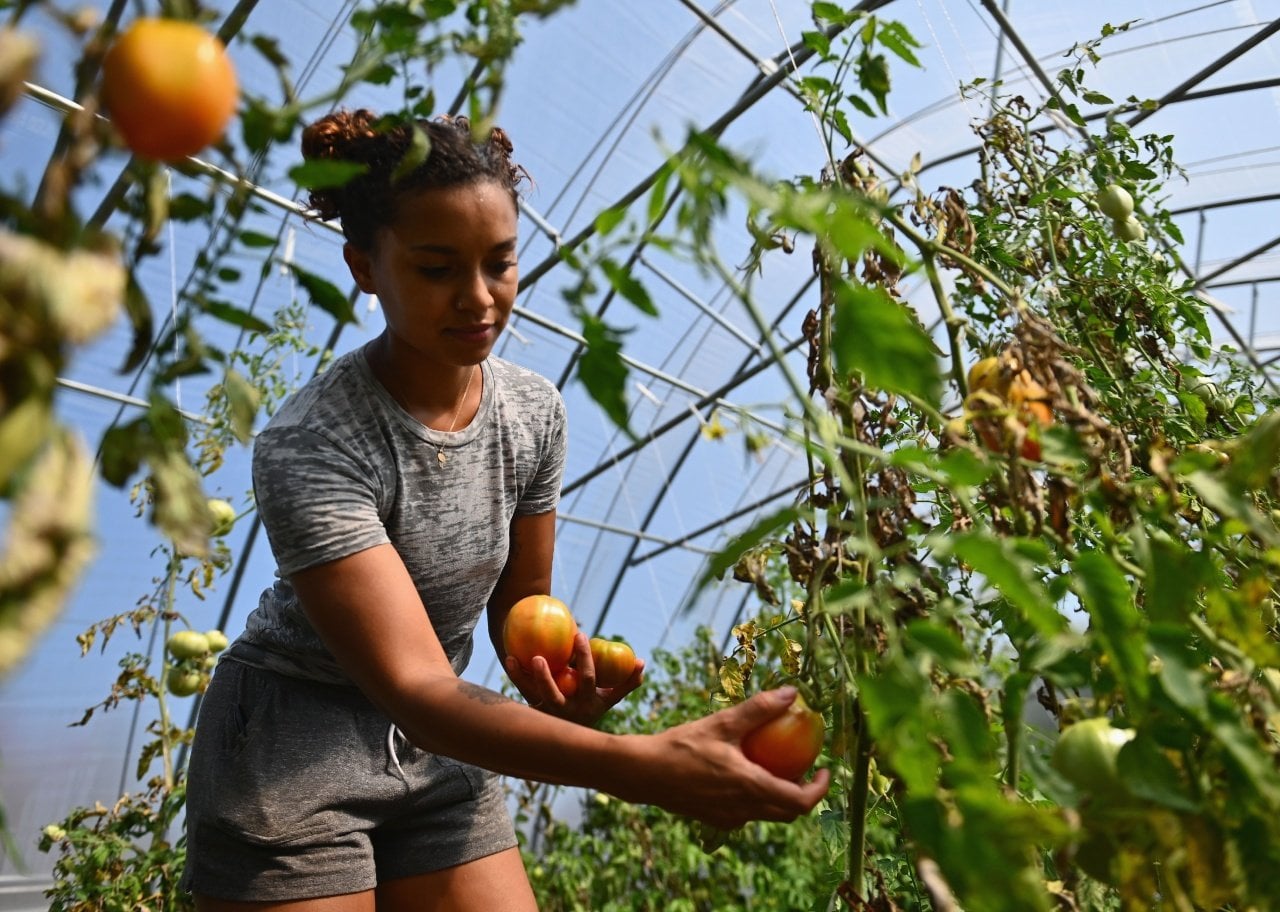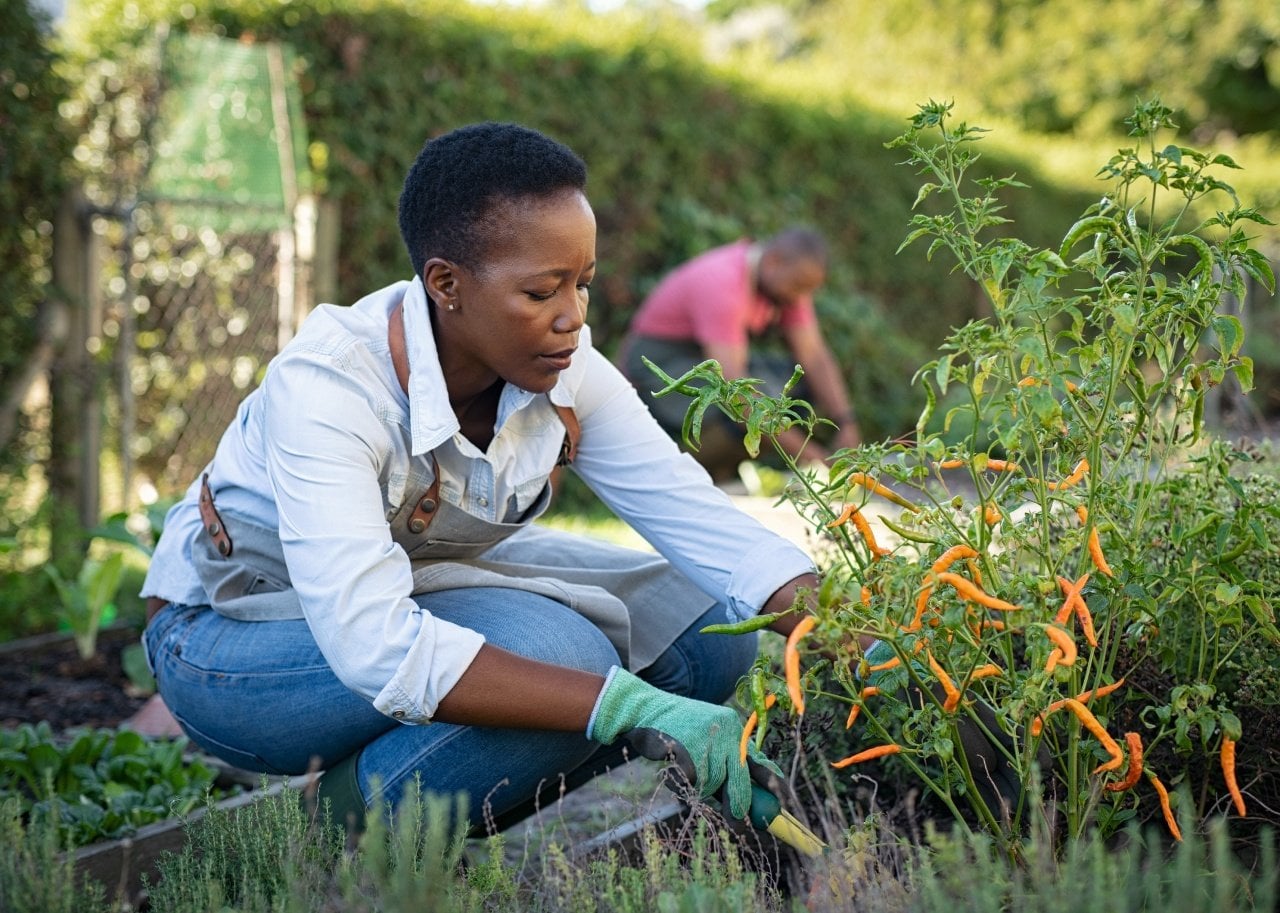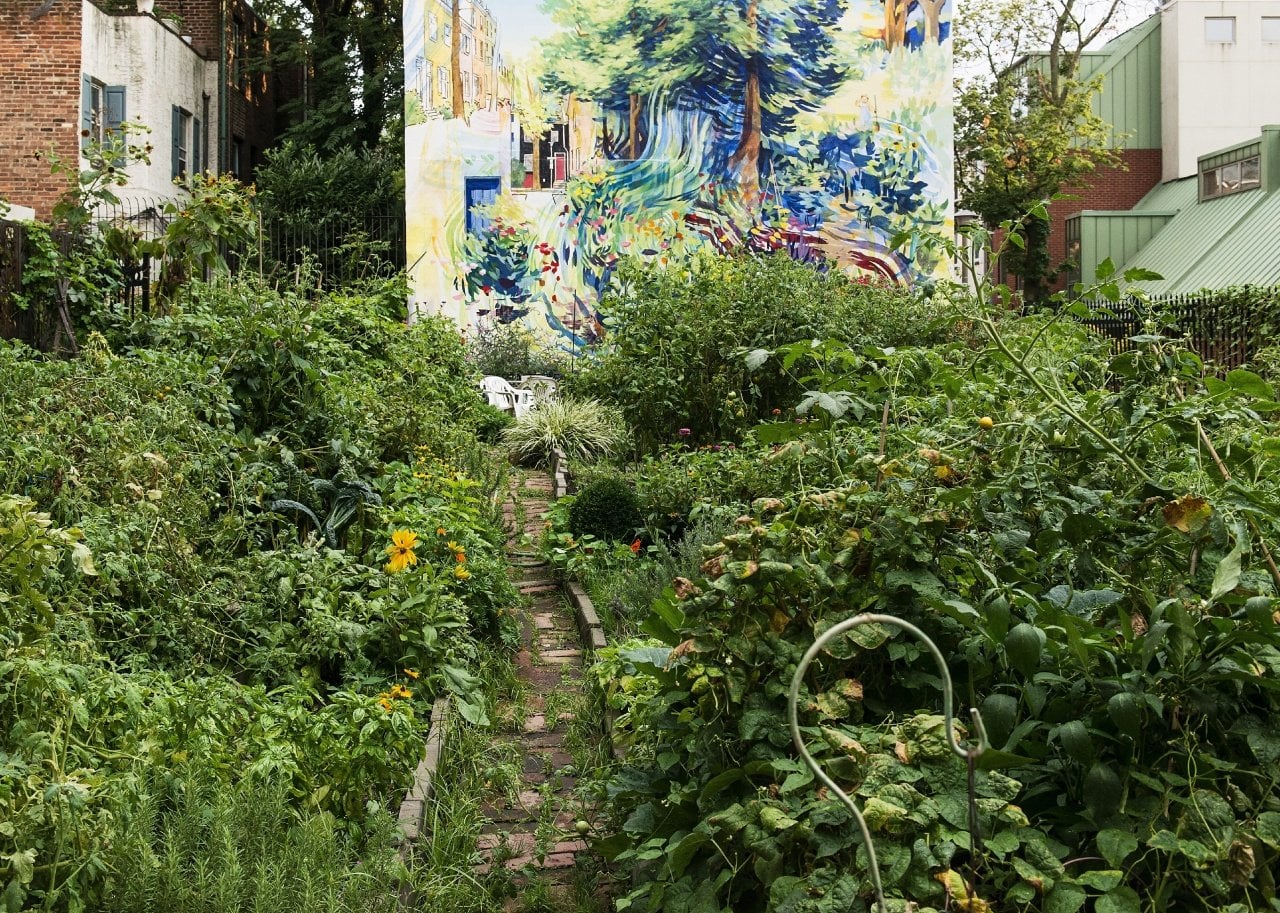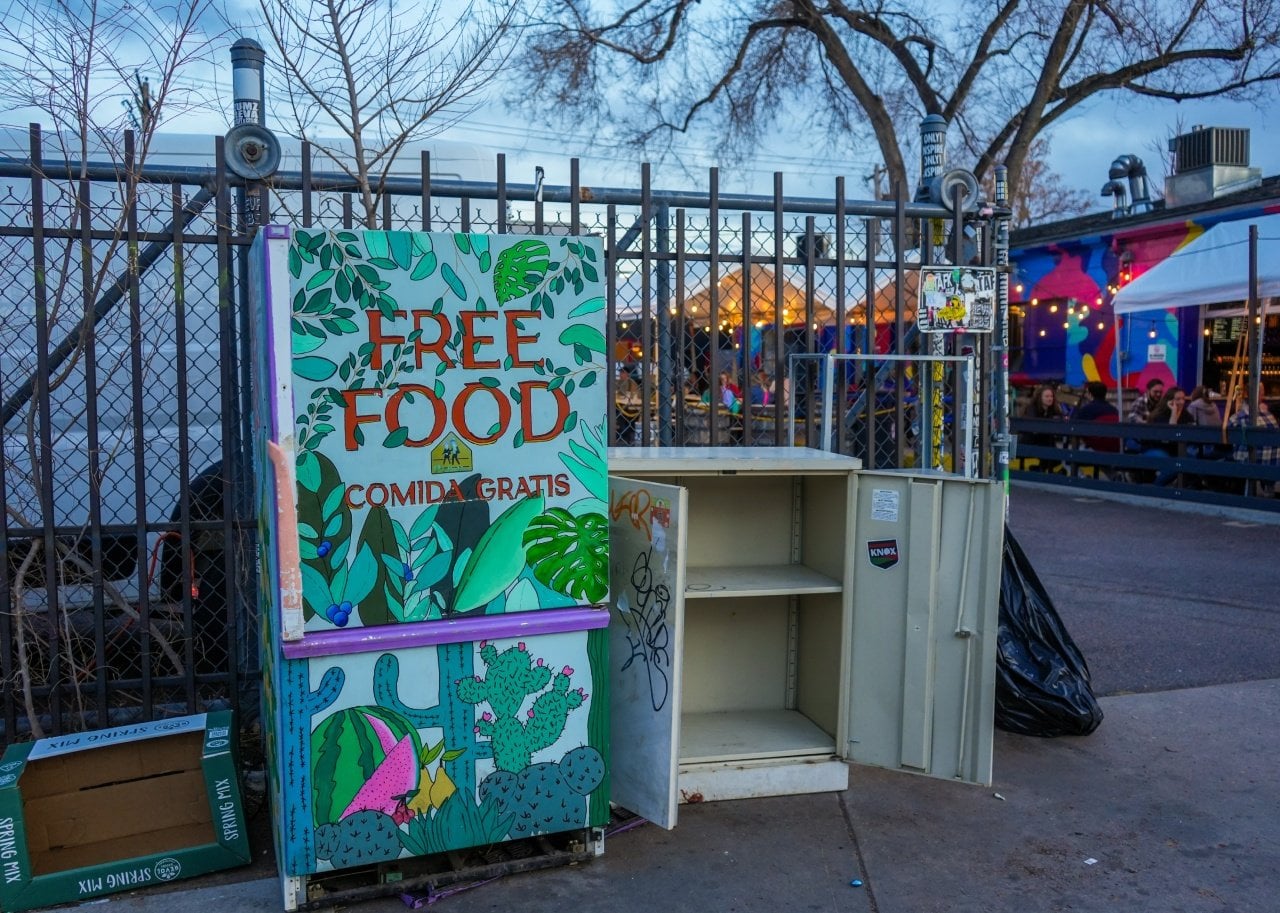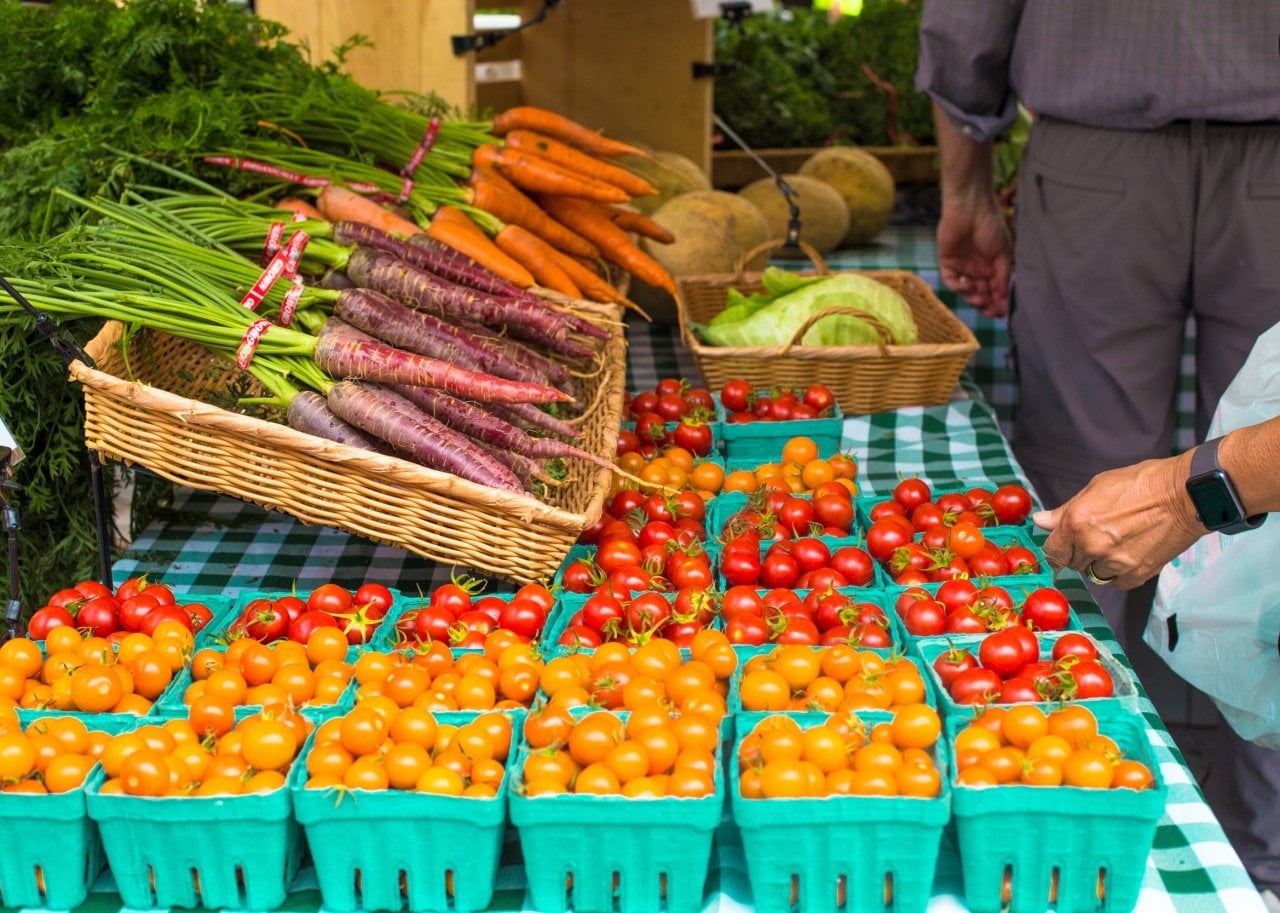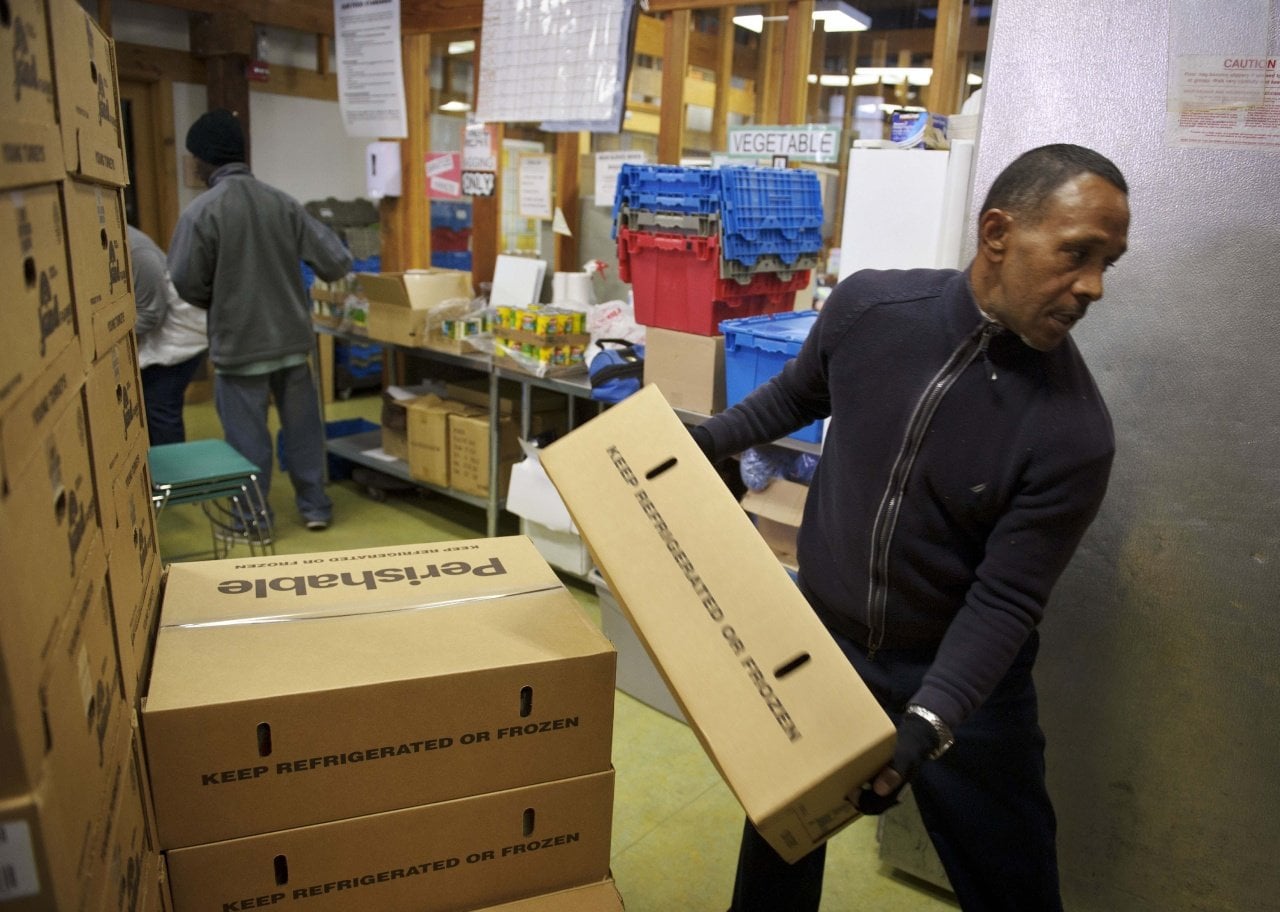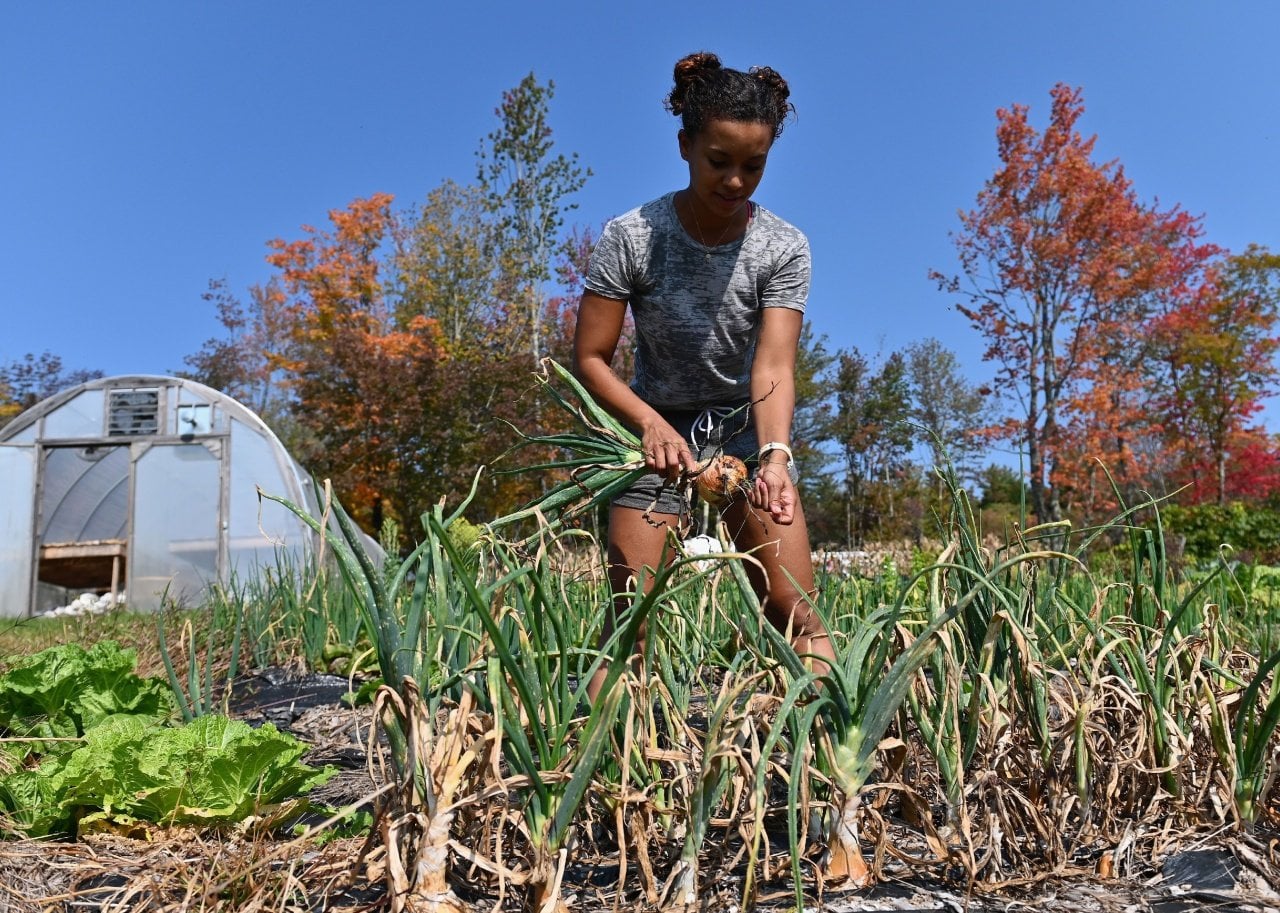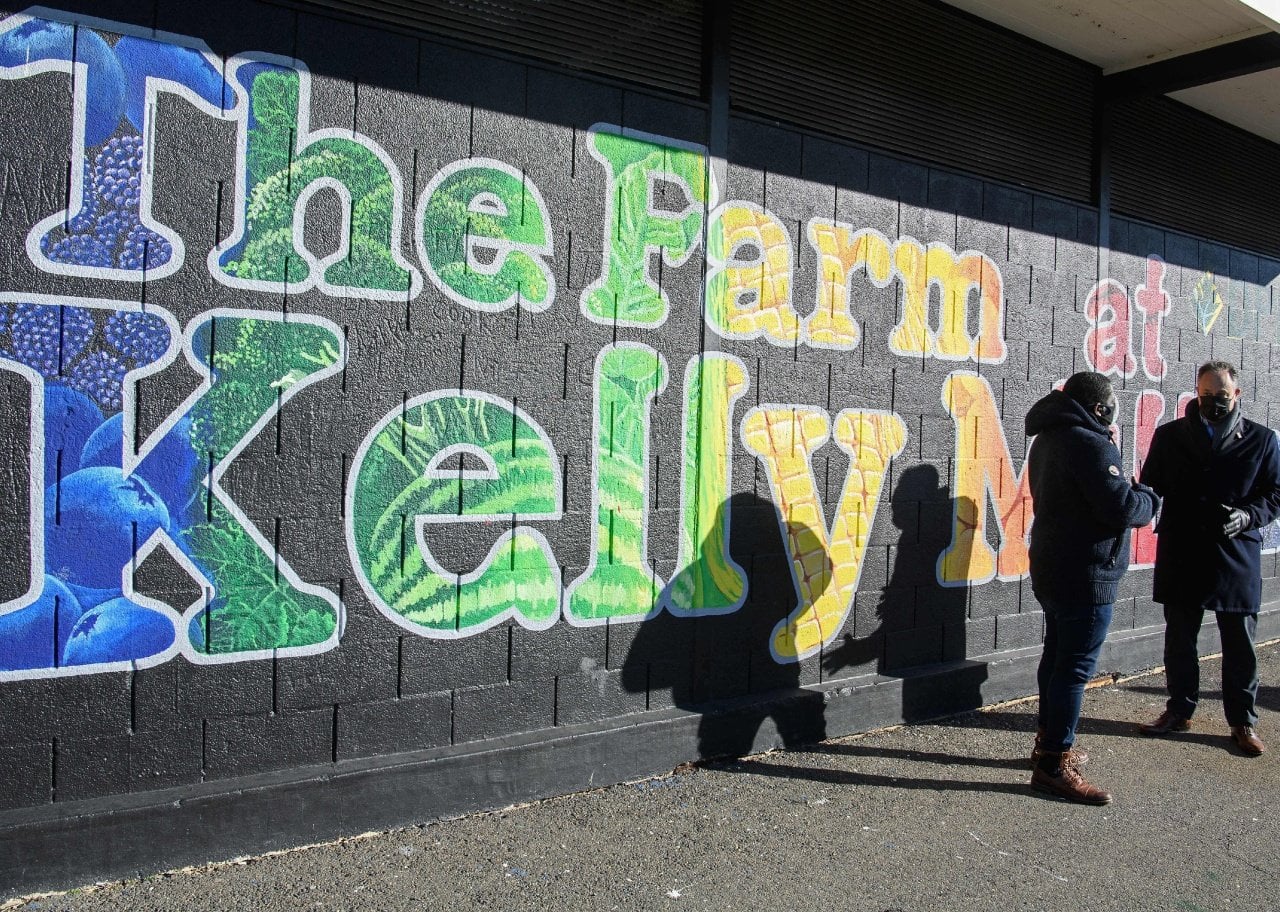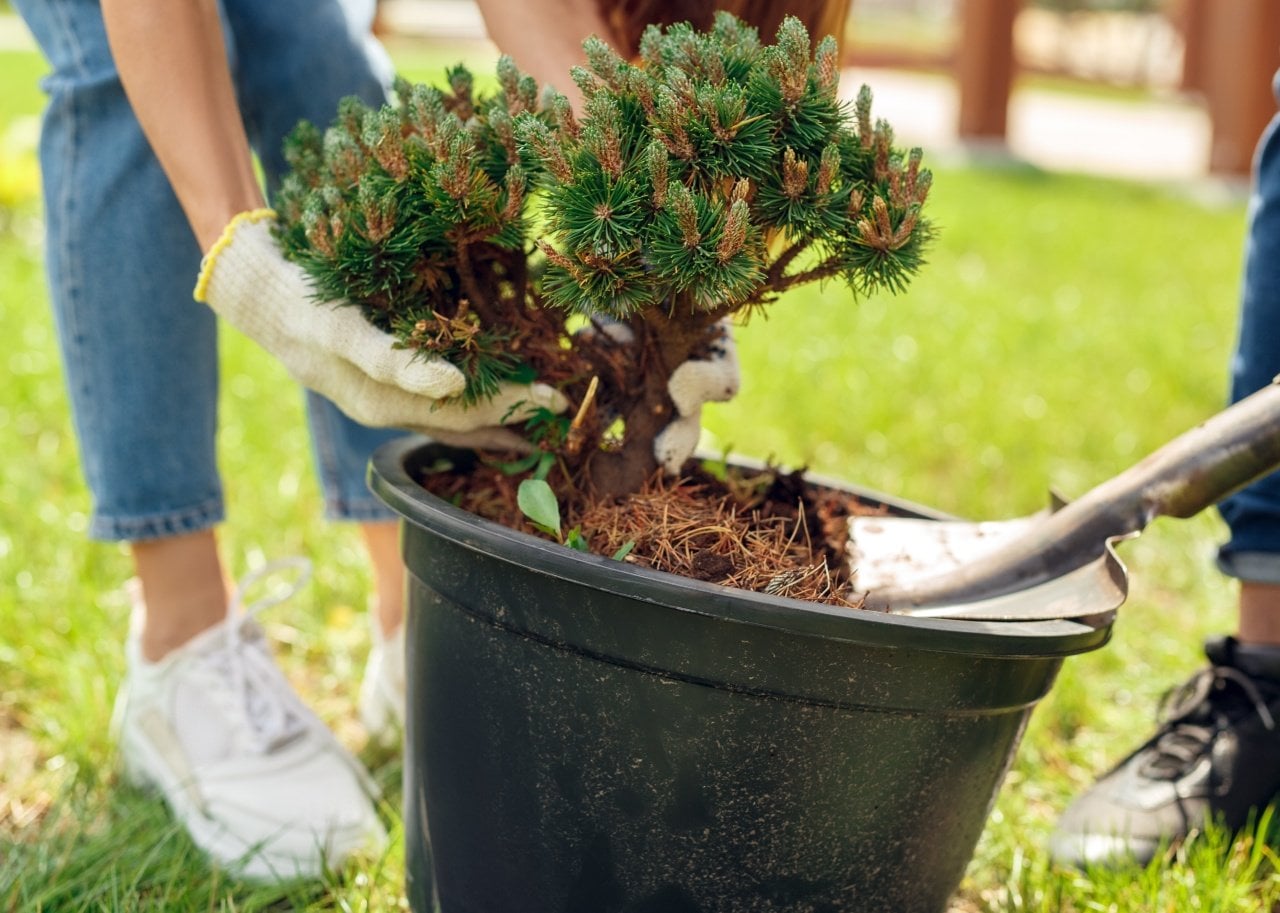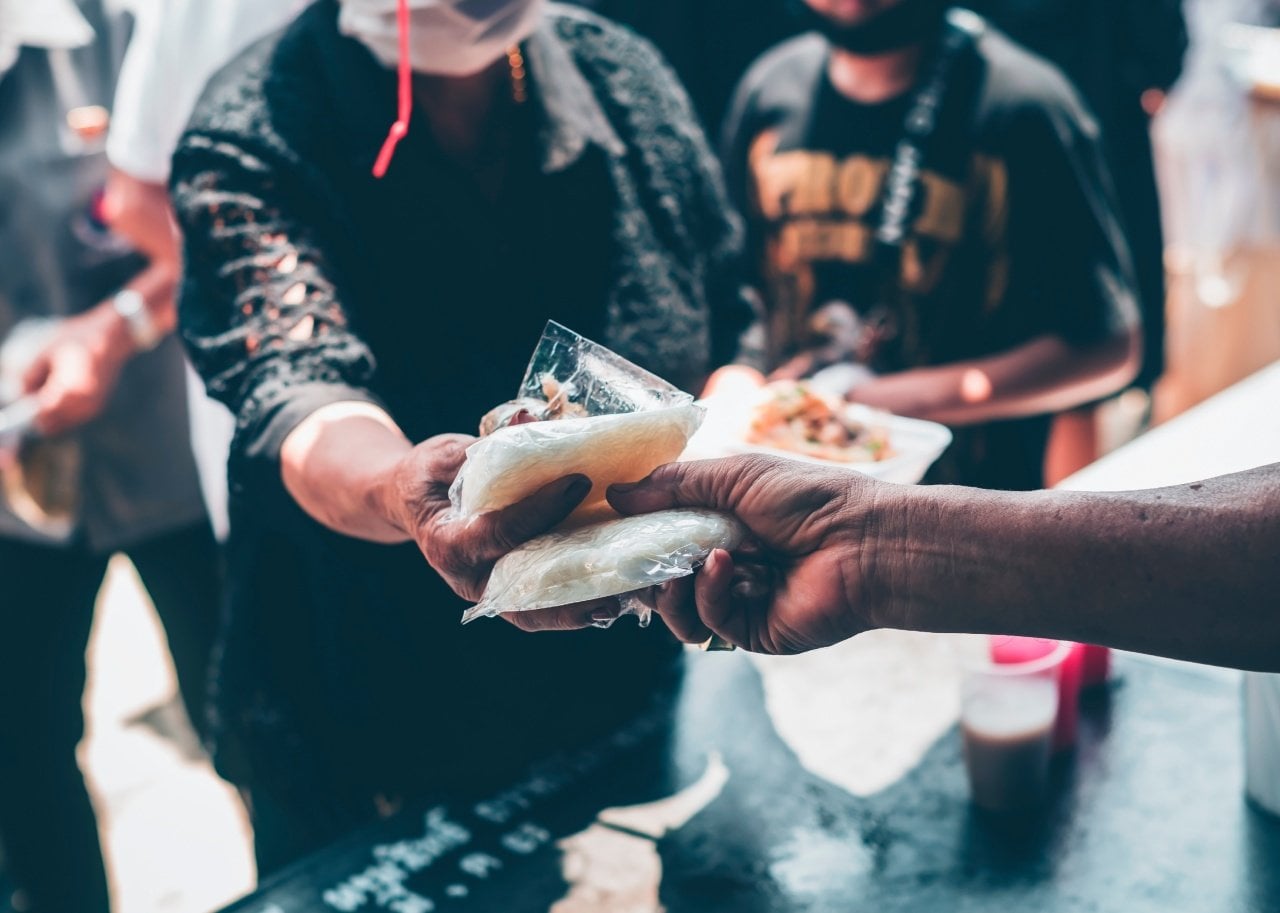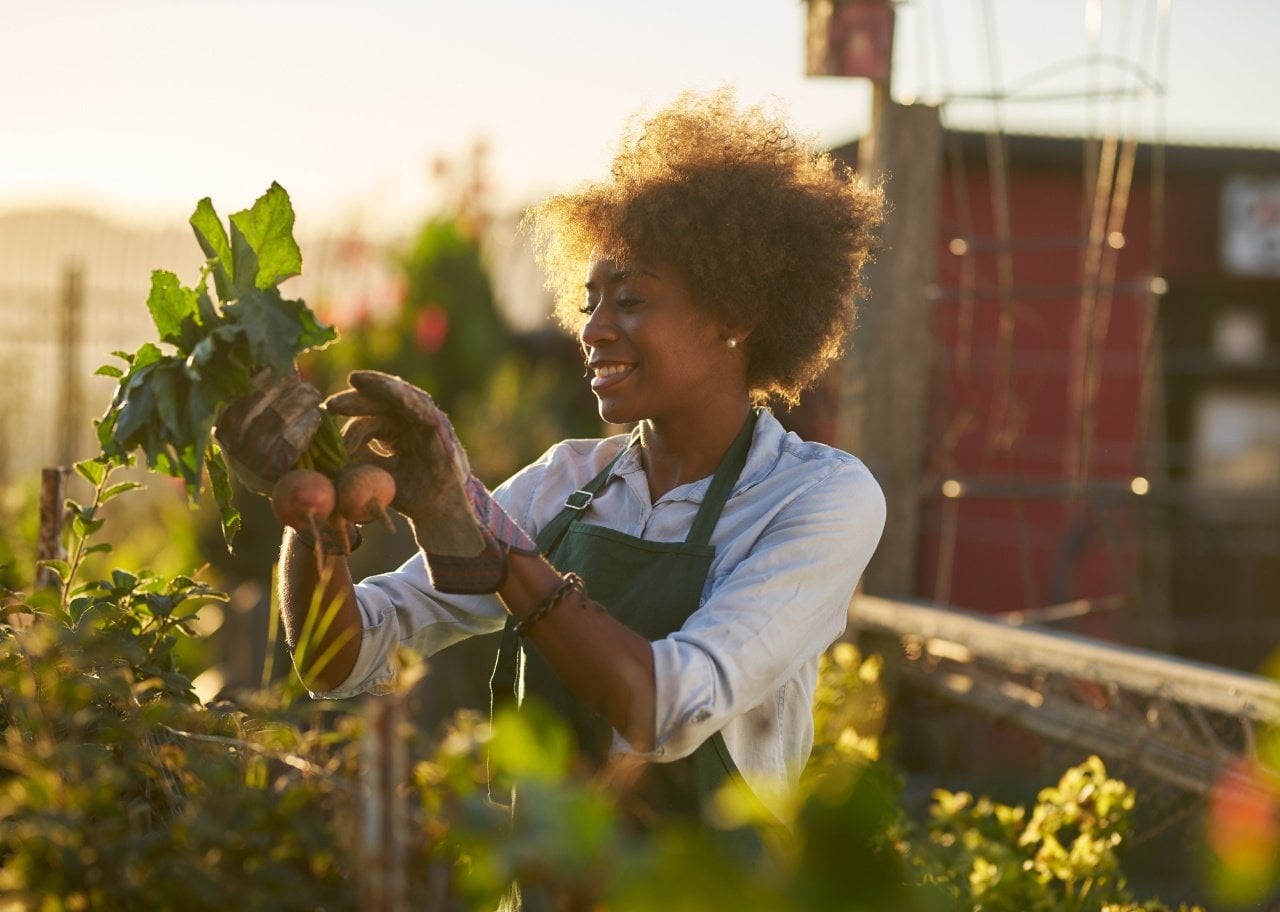10 Black-led food justice organizations you should know about
ANGELA WEISS // Getty Images
Food justice is the idea that everyone deserves access to fresh, nutritious food that is both appealing and appropriate for one’s culture. It examines the food system as a whole and emphasizes that equity and care should be top of mind for each stage of the food process—from how the land is cultivated to the workers tending to the crops to those who consume the product.
Food justice is also the right to grow, sell, and eat healthy food. Efforts and initiatives to ensure people have access to food are not engaging in charity. Instead, they are supporting an individual’s right to food options. The same is true for farmworker resources and support.
Based on the food justice framework, everyone involved in food production should be treated well and paid a fair wage, regardless of their documentation status or ethnic background.
Similar, and often used interchangeably, is the food sovereignty framework. The basics remain the same, but food sovereignty goes beyond providing access to food and questioning the imbalanced food systems. Food sovereignty pushes for community self-sufficiency and places marginalized communities at the helm of their own healing and sustainability.
Working within a food justice framework requires an acknowledgment of the ongoing and intentional barriers that marginalized communities face in connection with access to food, namely Black and Brown communities and those facing homelessness. Almost a quarter of Black households and 1 in 5 Hispanic households experienced food insecurity in 2022, according to Department of Agriculture data.
Taylor Scott, founder of RVA Community Fridges, a mutual-aid group based around the Richmond, Virginia area, says this includes taking note of food insecurity’s historical roots. Scott told Stacker this includes “where we get our food from, how we get foods, what foods we can get, and why those things are the way they are.” It also means breaking down existing systems, Scott added.
Analyzing the food system from different perspectives creates the opportunity for varied approaches. Organizations have leaned into food justice work in many ways, including building and managing community fridges, connecting Black farmers to funding and community, making and serving meals to those who need them, and advocating for lasting policy change.
Through a combination of interviews, local and federal data, and news reports, Stacker compiled a list of 10 organizations throughout the U.S. with missions connected to food justice or food sovereignty through direct food services and assistance, teaching and cultivating positive land stewardship, support of Black farmers, or food rescue efforts and initiatives.
Ground Picture // Shutterstock
Southeastern African American Farmers Organic Network
SAAFON is a nonprofit that connects Black farmers in the southeastern United States. Its mission revolves around a commitment to “…culturally relevant, ancestrally guided, and ecologically sustainable agricultural-based living.”
According to SAAFON, the organization was born from a workshop and ongoing conversations between the late co-founder Cynthia Lou Nicholson Hayes, who helped Black farmers earn organic certifications from USDA, and Owusu Bandele in the early 2000s.
Since 2006, the organization has pushed for more just and equitable food systems, particularly in the South. SAAFON addresses food justice by teaching farmers about sustainable land stewardship and farming or agricultural practices rooted in Afroecology/Agroecology, which derive from Indigenous teachings that center on the health and well-being of the individual and the land.
SAAFON also helps Black farmers create business and marketing plans and offers training on applying for organic certification. Many resources like these are often out of the reach of Black and Indigenous people.
John Greim // Getty Images
Soil Generation
A collective of Black and Brown women focused on healing the land and their Philadelphia communities, Soil Generation leans into food justice through sharing food and resources, honoring and protecting their land, and pushing for communities of color to have control of the land taken from them.
The organization started as an all-volunteer initiative in 2012 when Philadelphia revised its zoning code for the first time in 50 years. At the time, many Black and Brown community gardeners found the land they cared for and planted on was being bought out from under them and sold for a profit.
By early 2013, this coalition announced a victory by working with local lawmakers to amend a bill that would have required special exceptions for market farms and community gardens in certain city zones, adding yet another barrier for farmers in Philadelphia.
Since then, the organization has helped co-author the city’s first Urban Agriculture Plan, which reached out to hundreds of growers over four years and organized equitable food system-focused initiatives and campaigns.
Jamilya Khalilulina // Shutterstock
RVA Community Fridges
RVA Community Fridges is a grassroots organization based in Richmond, Virginia. Maintaining the common community fridge motto of “comida gratis” (“free food for all”), the mutual aid group currently has 13 free community fridges throughout and near the city, all with 24-hour access.
Community fridges usually hit two strategies for working within a food justice framework: food rescue and directly addressing hunger. Food waste is a massive issue in the U.S.: Around a third of all food is estimated to be wasted each year.
At the same time, hunger continues to be an issue, both in the U.S. overall and in Virginia. As of 2022, 11.2% of Americans dealt with hunger, and 9.3% of Virginia residents were food insecure, according to USDA data.
While community fridges are not unique to Richmond, RVA Community Fridge’s dozen-plus locations (all partnered with local businesses and organizations) showcase the ongoing and increasing support from the community, which has enabled the organization to address the food waste and food insecurity issues head-on. The organization has rescued and redistributed over 52,000 pounds of food in its three years of operation.
Scott acknowledged that while community fridges are just a point in the larger fight toward food justice, removing financial barriers fits intentionally within the framework. “The big part of food justice is really just allowing people to get food without barriers,” she said to Stacker.
In addition to the community fridges, RVA Community Fridges is working on opening a free restaurant in the city in partnership with another mutual aid organization. They’re hoping to open the restaurant in February.
littlenySTOCK // Shutterstock
Just Food
Since 1995, the New York-based nonprofit has sought a “democratic, transparent, equitable, and healthy food system rooted in racial, social, economic, and environmental justice,” Just Food says on its site.
Over 1.2 million people living in New York City are food insecure, with a majority of them being a part of marginalized communities. The organization notes this is a systemic issue. It addresses it by working throughout the five boroughs and building relationships that support more than 50 small and midsize farmers and producers, educating community chefs on how to conduct demonstrations that showcase their culturally relevant recipes, and providing technical support—all while centering racial equity and financial accessibility. The organization also hosts Just Food Conferences focused on diverse voices in food, discussing the inequities they face.
MANDEL NGAN // Getty Images
Bread for the City
Bread for the City is a nonprofit organization based in Washington D.C. that approaches food justice through community organizing and public policy. Bread for the City’s mission is to eradicate racism: They consider this structural inequity a basis for food insecurity and the way it disproportionately affects communities of color.
Since 1974, Bread for the City has entrenched itself within the D.C. community. The organization began with a coalition of area churches, which came together to provide food and access to clothing. In 1995, it merged with Zacchaeus Free Clinic.
For decades, the organization has not only fed the hungry, but addressed other ramifications of structural racism and poverty, such as continued clothing and medical care, advocacy, legal and social services support, and an ongoing diaper distribution program through the Greater D.C. Diaper Bank.
One of its innovative programs is having the nonprofit’s health clinic doctors prescribe fruits and vegetables to those diagnosed with diabetes or hypertension. Patients receive prepaid cards that they can only spend on fresh produce.
ANGELA WEISS // Getty Images
Soul Fire Farm
Soul Fire Farm is a Black- and Indigenous-led organization with the mission to help end food apartheid.
The farm began in 2010 by a Black Jewish family in Albany, New York, who struggled to provide fresh food for their children. At the urging of neighbors who supported the idea of “farm for the people,” the family founded the organization on 80 acres of Mohican land in neighboring Grafton.
Soul Fire Farm first offered vegetable and egg deliveries for low-income families. It has since then expanded to provide education and training programs. The farm distributes to over 1,900 people from marginalized communities and has trained more than 11,000 people in farming best practices and food sovereignty.
By offering its Farming In Relationship to Earth program to aspiring Black, Indigenous, and Latine farmers, the organization hopes to reverse the decline in farm ownership among these communities. The farm is also a fiscal sponsor for the Northeast Farmers of Color Land Trust, which works on land reparations projects for Black, Brown, and Indigenous communities living in New England and upstate New York.
NICHOLAS KAMM // Getty Images
Dreaming Out Loud
In 2008, Christopher Bradshaw started Dreaming Out Loud as an education-focused response to ongoing racial and socioeconomic disparities in Washington D.C. Bradshaw leaned into work connected to the food system, which helped the organization evolve into a community farmers market program, founded with the help of a local church and a farmer. The program lets residents buy produce from local farmers using SNAP.
According to DOL, the organization’s transformation over the years included shifting and growing into one focused on urban agriculture and food systems change—always with an emphasis on historically underserved communities.
Today, the organization manages a 2-acre urban farm behind Kelly Miller Middle School in Ward 7, which provides youth the opportunity to learn how to grow and cook fresh foods that celebrate their cultures. The fruits and vegetables grown in the garden are also served in the school cafeteria and used in the culinary curriculum at the school. Events include monthly drum circles, weekly composting classes, and an herbal mutual aid apothecary.
The Kelly Miller farm’s presence near Wards 7 and 8 in Washington D.C. is particularly vital: As of August 2023, DC Hunger Solutions reports there are only seven full-service grocery stores and zero in the pipeline in an area of more than 147,000 residents—most of whom are Black.
Aside from these, DOL has a program aimed at start-up food entrepreneurs to gain experience and coaching from experts. The organization also advocates for more equitable food systems through policy and Bradshaw’s work on the DC Food Policy Council.
Viktoriia Hnatiuk // Shutterstock
Urban Community AgriNomics
Urban Community AgriNomics, based in Durham, North Carolina, is focused on teaching communities about urban agriculture, providing accessible resources to do so, and donating freshly grown foods to the community with an annual budget that averages $26,000.
Founded by sisters Delphine Godley Sellars and Lucille Godley Patterson on the Catawba Trail Farm, UCAN was made an official nonprofit in 2016. Before this, the Godley sisters worked in varied capacities to address food insecurity and community health concerns.
The Catawba Trail Farm has a troubled history as the site of the former Snow Hill Plantation—the first in the county. “I often say when I walk on the property, my ancestors are proud,” Sellars told Spectrum. “It now says that we are on this property not because we have to be, but because we want to be.” But, the sisters have made it their mission to make the site one that fosters healing and learning for Black farmers.
UCAN holds volunteer hours for those who want to come by and help cultivate the land and provides workshops and classes. It is working to turn an old structure on the land into a demonstration kitchen, which will double as a meeting space and study area.
addkm // Shutterstock
Feed Durham
North Carolina’s Feed Durham was born out of community member Katina Parker’s desire to support her community grappling with COVID-19.
“I live in East Durham, it is a food desert,” Parker told WUNC. “I see a lot of physical health issues that are caused by malnutrition and poor nutrition.”
Feed Durham began as a single event in 2020, feeding over 1,000 people. The gatherings have grown and evolved since then, feeding over 155,000 people in the process.
In addition to their community food shares, Feed Durham has initiatives focused on gardening and growing food, skillshares, and land stewardship. It also launched clinics to help people repair their household goods, minimizing the expenses of fixing these items and diverting them from landfills.
Joshua Resnick // Shutterstock
National Black Food Justice Alliance
The National Black Food Justice Alliance is a coalition of Black food-justice-focused individuals. Members include farmers, organizers, and land stewards, all moving toward creating a more equitable food system.
NBFJA pushes against anti-Black food system practices and uplifts community self-determination and land justice through building visibility, institution building, direct action, and creating collective safe spaces.
One of the primary catalysts for NBFJA is to address how land has been taken from Black communities and farmers. Only 1.4% of farmers identify as Black, according to a McKinsley analysis of 2017 USDA Census of Agriculture data (the most recent data available).
In 2022, the organization announced the launch of the Lola Hampton-Frank Pinder Center for Agroecology at Florida A&M University, which will be an incubator for radical solutions and provide support for land grant institutions.
The organization also working to drum up support for the Justice for Black Farmers Act, which was introduced in January 2023. This legislation aims to address inequities in the agricultural sector through the USDA. It would establish an equity commission at the agency to recommend actions against discrimination for Black farmers and ranches and establish a Farm Conservation Corps so youth from marginalized groups can pursue farming and ranching.
Story editing by Carren Jao. Copy editing by Kristen Wegrzyn. Photo selection by Clarese Moller.
![]()
